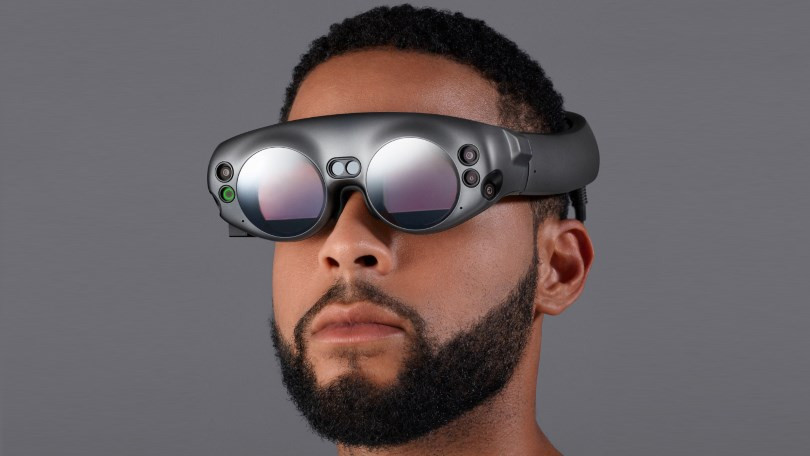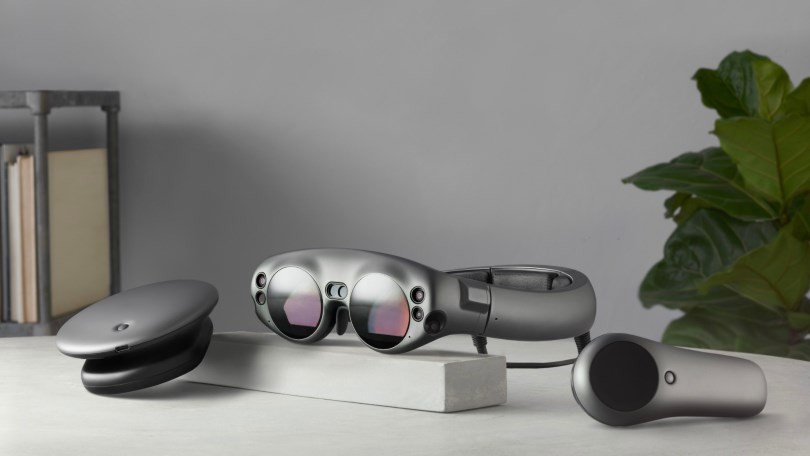Oculus is all about virtual reality, Microsoft is a mixed reality shop, and Apple is all-in on augmented reality. Then we have Magic Leap, which has been promising us something amazing for years now without actually unveiling anything. That is, until today, when we got a look at the Magic Leap One.
As you can probably guess from the image above, Magic Leap is finally ready to show us what its own mixed reality headset looks like. Flying goggles come to mind, but overall it’s quite a streamlined unit.
Two cables extend out the back of the headset, which feed down into a circular, belt-mounted hardware unit. Magic Leap refers to this as the engine that “drives our spatial computing platform.” In the hand, there’s a wireless controller offering force control and haptic feedback with six degrees of freedom, smooth movement, and intuitive gesture response.
Magic Leap promises an experience similar to what is already offered by Microsoft’s HoloLens, including mixed reality gaming, the ability to fill the real world with persistent, lifelike digital objects, and soundfield audio adding to the overall “real” feel of the experience.
There is also a focus on “pulling the web out of the screen” suggesting Magic Leap will offer a web-first 3D experience. Add to that the ability to project multiple displays, “be present anywhere” when talking to friends or co-workers, and getting creative using that wireless haptic controller.
Of course, before consumers get to buy one, Magic Leap needs developers. A One kit creator portal will launch in early 2018 offering access to an SDK, tools, documentation, other learning resources, and a support system. After that, it’s all about content and what developers manage to create.
Once the developer launch is out of the way we should hopefully hear about a consumer launch. Will that happen in 2018, too?





